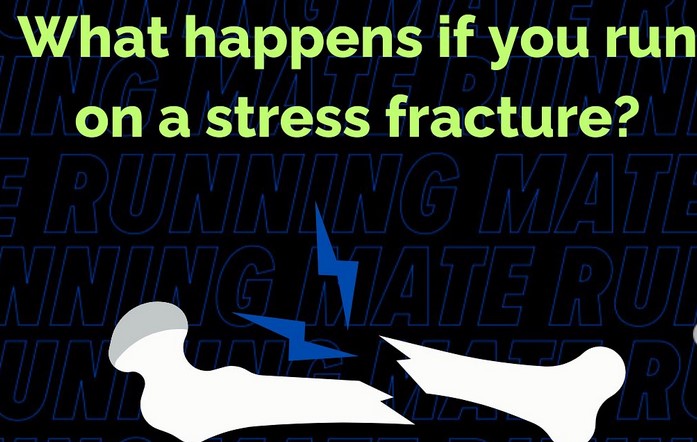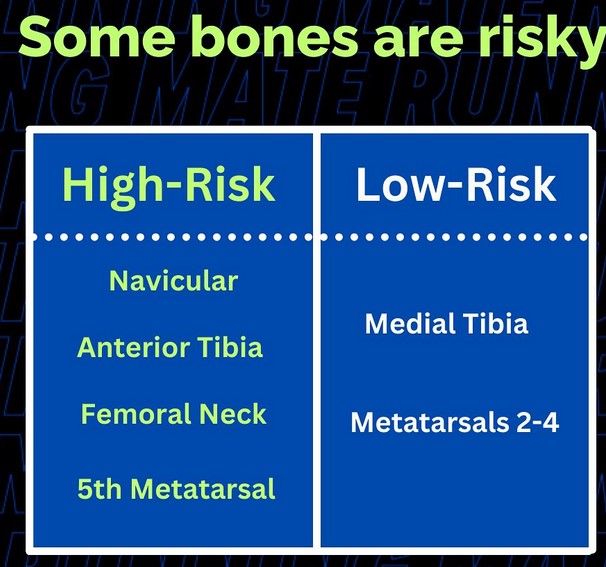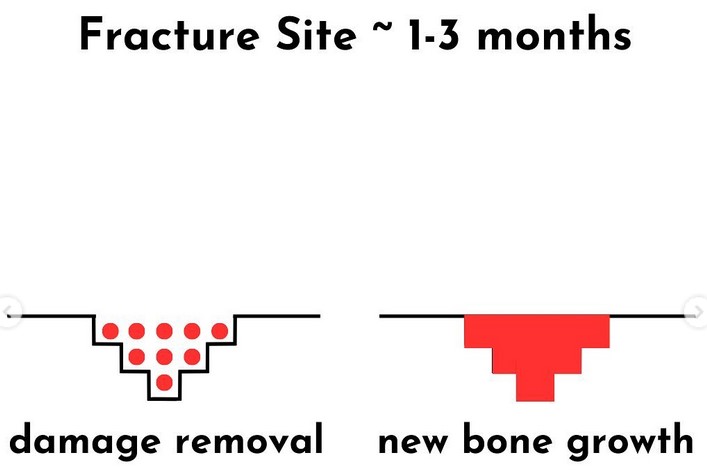One of the biggest myths in running is that injuries are inevitable. And one that we may have a great deal more control over than expected are stress fractures in running! Today we talk with Dr Nathan Carlson, an expert in this area who has worked with many runners on both prevention and recovery.
First up in our discussion is simply getting clear on what we’re talking about!
The term used by professionals is actually bone stress injuries.
Stress Fracture vs Stress Reaction
Starting at the top, you’ll see pretty quickly why Dr. Carlson points us to the term bone stress injury. He’s been working with runners in Kansas City for eight years and constantly studying information around this topic specifically.
There’s a paper that came out last year called Every Bone Stress Injury is Not a Stress Fracture. And it talks about the specifics of the injury.
If you think about the term bone stress injury, that’s really any kind of injury to one of your bones. That can range from a stress reaction, which is kind of the lowest severity to a stress fracture, where we have a fracture line that we can see on imaging, and then a full fracture, where there’s been a complete break through the bone.
For runners, that’s really important, because depending on the term that gets used by the Doctor and how that’s interpreted, it really determines the management.
You’ll be running much sooner with a stress reaction than a complete fracture. But what’s obviously tricky here is ensuring that the former doesn’t lead to the later! Or that something simply isn’t visible at the moment on imaging and thus not even listed as a stress reaction.
We grade stress reactions from one to three. So you can have a grade one stress reaction or a grade two stress, grade three stress reaction. All that means is that severity has increased.
When Can I Run Again with A Bone Stress Injury
Dr Carlson shocked no one by saying this is literally the first question every single runner asks when coming in after diagnosis!
And this is where that initial diagnosis becomes really important:
- What’s the bone stress injury type
- What’s the grade
- Where is the location (some require more time off weight bearing, which is going to slow the return)
- Is it over a tendon or directly over a bony area
- Are we positive it’s bone and not tendon
“The big thing is if it improves with rest, so if you get off of it and it feels better, or if you’re all of a sudden not able to tolerate weight bearing. Tendons and muscles, warm up, there’s more variability, so you might be able to modify those symptoms with shoes or running differently or different terrain.
Bone really doesn’t do that. It gets worse. The trajectory of how you’re doing is getting worse.”
As always, one of our big red flags that you must stop or shouldn’t restart is if it’s changing your gait. That’s going to create a reaction of other potential issues.
What Are the Biggest Risk Factors for Stress Fractures in Runners
The biggest risk factor for a bone stress injury is a previous one. Which makes sense, that tends to apply to most of our injuries! But what could have prevented that first injury?
Genetic bone mineral density plays a role. Without a full DEXA scan you can’t know your density, but if you have a family history of osteoporosis, osteopenia, low density then it could be worth finding out to be aware because it’s 60-80% determined by genetics.
That other percentage can come from lifestyle factors. Not running itself, but the Female Athlete Triad, now known as RED-S, can absolutely be a factor.
Dr Carlson said “for a lot of runners, it’s unintentional under fueling. They didn’t realize he needed to eat enough, or they didn’t realize he needed to have such a prominent plan in place when it comes to fueling.
And if that doesn’t get addressed, the reason why the second one happens, or the third one, or the fourth one. So if I work with a patient now that’s diagnosed with a bone stress injury, I think they absolutely need to work with a registered sports dietitian.”
And of course, that leads us back to the age old mistake of too much too soon. Which could mean that a runner ramped up volume faster than the body could adapt, they increased intensity too quickly or a combination of both.
Is Running Good For our Bones?
We’ve always heard we need to do weight bearing exercises and technically running is nothing but transferring your weight from foot to foot, it’s weight bearing!
When we stress a muscle or the bone, it tells our body that the area needs to become stronger for the demands of our life.
But…different types of strain create different types of adaptations. Bone likes high levels of strain. Think heavy lifting and plyometrics and sprinting.
That’s what it prefers. It also likes short duration of strain. So it doesn’t like a lot of repetitions, which is the opposite of distance running.
Intrigued by this discussion, want to know even more?? Of course you do!! Our entire podcast on bone stress injuries and understanding stress fractures in runners is available now.
Definitely follow @runningmatekc on Instagram as well if you want to stay on top of information around this topic!
Looking for more running injury info?
- How to return to running after a stress fracture
- Nutrition to help with bones
- What Vitamins do Runners Really Need
Other ways to connect with Amanda
Instagram Daily Fun: RunToTheFinish
Facebook Community Chatter: RunToTheFinish
Sign Up to Receive a Weekly Newsletter with Top Running Tips and Laughs



 Hoka Clifton 10 Preview | Will it Last?
Hoka Clifton 10 Preview | Will it Last?